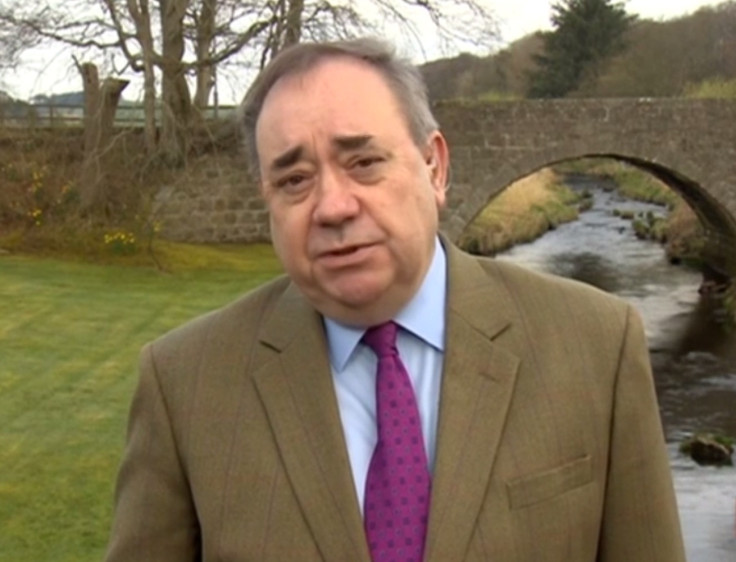United States must follow international law, warns Alex Salmond
The Scottish politician said investigations have to be carried out before military action is justified.
Scottish MP Alex Salmond has called for the measures of international law to be applied to Syria in place of unilateral action by the US.
Following the suspected chemical weapon attack in Khan Sheikhoun, US President Donald Trump authorised 59 cruise missile strikes on the Syrian airbase of Sharyat and nearby locations.
A number of prominent lawyers have stated that Trump's strikes, which were carried out with UN Security Council authorisation or a self-defence rationale, are a violation of international law.
Salmond, the former Scottish First Minister, echoed the call for the proper procedures to be followed as he appeared on the BBC's the Andrew Marr Show on Sunday (9 April).

"What should happen if somebody, the Syrian regime or whoever, is responsible for using chemical weapons against a civilian population or [using] barrel bombs or bombing hospitals – there should be a proper UN investigation and those responsible should be arraigned before the International Criminal Court," he said.
"That's the way you impose international rule of law. That's what should happen.
"Now, there's a number of obstacles to that happening; not least of which is the [USA], which unlike 130 other countries doesn't yet recognise the International Criminal Court.
"But that shouldn't stop the initiative being made to have a proper examination and those who are responsible for an atrocity being held properly to account in terms of international law.
"Military action without that basis of law, without that framework, is no substitute for doing what's right and proper: to impose rule of law and stop these things happening again."
Salmond's plea was similar to those made by China, Russia, Iran and Bolivia who also called for an independent investigation to establish who was behind the attack on 4 April.
The US, backed by the UK and other allies, has firmly pointed the finger at Syrian President Bashar Al-Assad. Assad's government has denied any involvement in the attack. Syria's state-run SANA news agency reported that Syria's deputy foreign minister Fayssal Mikdad said the country informed the Organisation for the Prohibition of Chemical Weapons (OPCW) and the UN that Jabhat al-Nusra is bringing "toxic substances" into Syria.
Russia has also defended Assad's regime. On its Facebook page, Russia's defence ministry announced that a Syrian airstrike had hit a "terrorist" ammunition depot in the eastern outskirts of Khan Sheikhoun.
At an emergency UN Security Council on the suspected chemical weapon attack, Bolivia's representative to the UN Sacha Llorenti said it was not good enough to take America's word for it that Assad was responsible without presenting adequate evidence.
He evoked former US Secretary of State Colin Powell's infamous 2003 presentation to the Security Council when it was asserted that Iraq possessed weapons of mass destruction, only for none to be found after a bloody war that killed over a million people.
But independent experts told CNN that Russia's theory that anti-Assad militants used sarin gas was "highly implausible".
Dan Kaszeta, a chemical weapons specialist and managing director of the security and intelligence consultancy Strongpoint Security, said that the nerve agents used in Syria are a mixture of different chemicals "the result of a very expensive, exotic, industrial chemical process" and are "not something you just whip up".
Due to the difficulties in preparing and storing these nerve agents, which have short shelf lives, Kaszeta dismissed the idea that Syrian rebels could covertly manufacture or deploy them. "It's much more plausible that Assad, who's used nerve agents in the past, is using them again," he said.
© Copyright IBTimes 2024. All rights reserved.






